In this episode of Biographers in Conversation, the award-winning historian and author Professor Kate Fullagar chats with Dr Gabriella Kelly-Davies about her choices while crafting Bennelong & Phillip: A History Unravelled.
Winner of the 2024 ACT Literary Award, Non-Fiction
Winner of the Canberra Critics’ Circle Award 2024, History/Biography
Shortlisted for the 2024 Prime Minister’s Literary Award, Australian History
Shortlisted for the 2024 NSW History Award, Australian History Prize and NSW Community and Regional History Prize
Shortlisted for the 2024 Age Book of the Year, Non-Fiction
Shortlisted for the 2024 Ernest Scott Prize
Shortlisted for the 2024 Magarey Medal for Biography
2023 Australian Book Review Books of the Year
2023 Sydney Morning Herald Best Reads of the Year
Aboriginal and Torres Strait Islander listeners are advised that the following show page contains images and information about people who have died.
Bennelong & Phillip
In 1789, Captain Arthur Phillip, Governor of the colony of New South Wales, kidnapped the Wangal man Bennelong as a potential negotiator for a treaty.
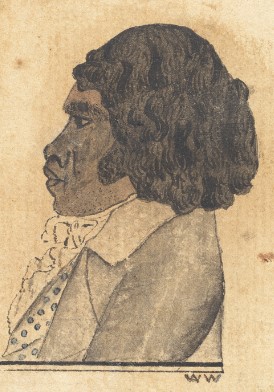
Bennelong, pen and wash on light board by ‘W.W’ 1793
State Library of New South Wales DGB10
While the treaty never eventuated, their years of contact – including Phillip’s near-fatal spearing and their journey to England together – meant that the stories of these two men became permanently entwined. Phillip has been widely regarded as a paragon of Enlightenment benevolence, the father of the nation, whereas Bennelong has often been thought of as an outcast, even a traitor to his people.
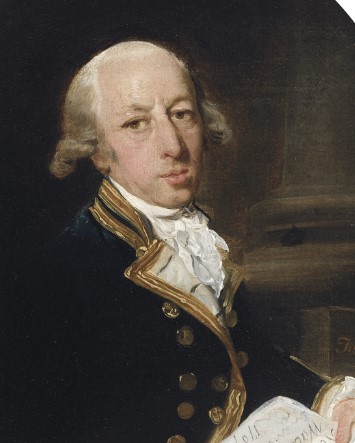
Captain Arthur Phillip, oil painting by Francis Wheately, 1786
The inaccuracy of these portraits prompted Kate Fullagar to write this extraordinary account of their lives in reverse. By upending the conventional chronology, she digs through layers of misperception, moving beyond conventional Western ways of writing about the past.
Writing History in Reverse
After the introduction, Kate plots the events in Bennelong’s and Phillip’s lives in reverse order, starting with the funerals of the two leaders. She then moves back through the colonial period towards and beyond their births, revealing their defining characteristics and the unfolding changes that shaped the respective worlds into which they were born.
The Challenges of Writing History in Reverse
Kate examines the complexities of intercultural encounters, particularly the power dynamics, cultural misunderstandings and moments of genuine connection that shaped the interactions between Bennelong and Phillip.
Challenging the stereotypical portrayals of Bennelong as a victim and outcast of his community, Kate presents him as a politically savvy, resilient and respected Indigenous leader who demonstrated remarkable agency and skill. She explores Bennelong’s role as a cultural broker, his political manoeuvring within both Indigenous and colonial societies, and his enduring legacy in Australian history.
In Bennelong & Phillip, Kate repeatedly uses the term ‘canny’ in describing Bennelong’s approach to his interactions with Phillip. Just a few examples are how he exacted concessions from the colonists, how he set out to confuse them, and how he withheld vital information such as how to source and cook native foods when the colony faced a famine.
Kate shows that Bennelong, far from being exiled on his return from England, went on to live as a respected leader whose chief concern remained the preservation of his people and culture.
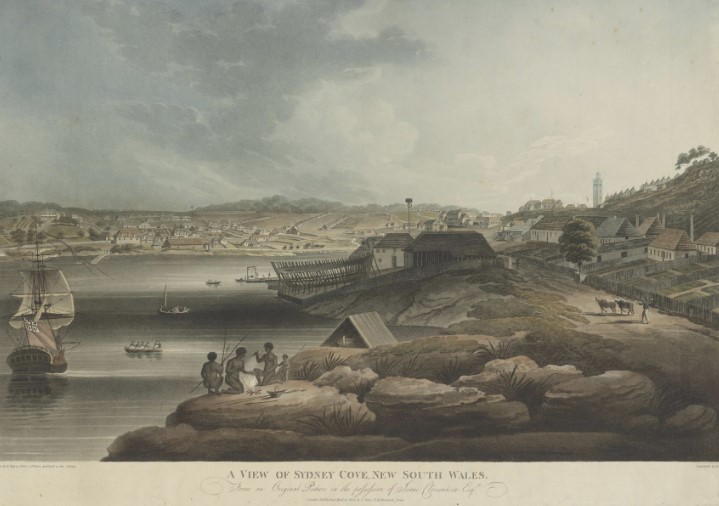
A View of Sydney Cove, engraving by Francis Jukes, c.1804
Bennelong & Phillip is a deeply insightful exploration of the intricate dynamics between two profoundly influential figures in Australian history. Kate’s meticulous research and unique narrative approach have provided us with a fresh perspective on the lives of Bennelong and Phillip, challenging long-held misconceptions and offering a psychologically acute portrayal of their relationship. Her dedication to representing Indigenous voices and perspectives, despite the limitations of colonial archives and absence of written records of Indigenous People, is commendable and adds significant depth to the biography.
The biography not only redefines our perception of Bennelong and Phillip but also prompts us to reflect on the enduring legacy of their relationship and its impact on contemporary discussions about Australian history. We are left with a renewed appreciation for the complexities of history and the importance of continually revisiting and reinterpreting the past.
Fullagar … presents the historical counter-narrative in her elegantly written double-barrelled biography.
Kate’s emphasis on challenging traditional narratives and portraying Indigenous perspectives provides a powerful framework for understanding this early and vital period of Australia’s history. She offers a new picture of Phillip and Bennelong by situating the period of their interactions as only one part of their lives, activities and achievements. She also explores the nature of their interactions, making a significant contribution to Australian historiography.
The Role of Revisionist History
Bennelong & Phillip, the first joint biography of Bennelong and Arthur Phillip, is an insightful exploration of their shared history and its profound impact on the formation of Australia. The biography offers readers a critical examination of the enduring legacies of colonisation. It encourages us to confront the complexities of the past and to engage in ongoing conversations about reconciliation and justice.
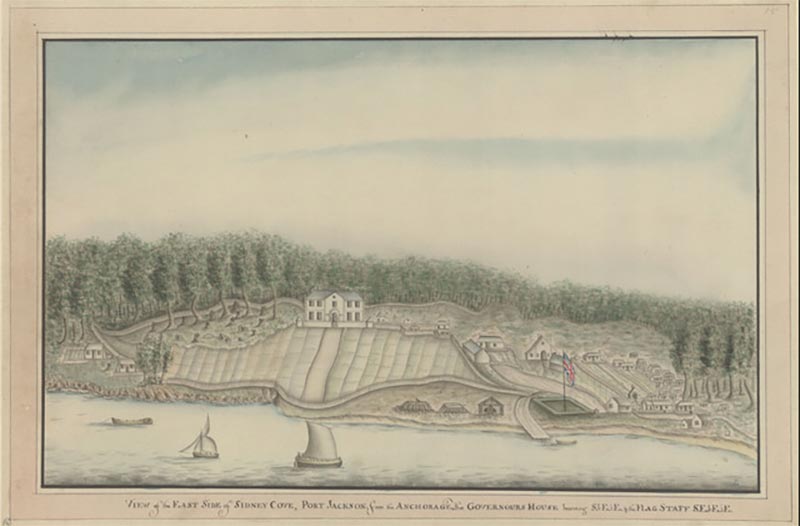
Phillip’s Government House, 1790
Natural History Museum
The biography ends with the following passage:
‘I hope this history of Phillip and Bennelong reveals that conciliation between settlers and First Nations has never truly occurred, despite a brief attempt to establish terms. I hope it shows how this circumstance was produced by much longer histories of Indigenous experience and imperial reaction than has been appreciated. Most of all, I hope it prompts some understanding of why conciliation, ultimately, can and must happen.’
Bennelong & Phillip Reviews
Bennelong and Phillip gives us a new, original lens onto this origin story…The book’s narrative reversal requires some skilful management to make sense. Fullagar…writes beautifully and clearly. That mastery of time and prose is essential, because this isn’t the sort of history book you can flick through on autopilot…Bennelong and Phillip is a disciplinary accomplishment.
Anna Clark in The Conversation
Bennelong & Phillip represents Fullagar’s mastery of an ethnohistorical approach that uses close and ‘thick description’ to analyse relationships between individual British and Indigenous men…. There’s no doubt that Fullagar has set up a new direction for thinking about the ways we structure our histories.
Victoria Haskins, History Australia
Fullagar transforms elusive detail into a compelling narrative. This is not only an important book but a timely one: she concludes that under Bennelong and Phillip, conciliation between First Nations and settlers was briefly attempted but ultimately unsuccessful. Understanding the historical context for this will help us, as a nation, to acknowledge its urgency and necessity.
Freeing herself from [an] old paradigm, Fullagar also frees Bennelong and Phillip. The various life phases of each take on a new significance. More than that, invasion, occupation and settlement can be more clearly understood because nothing is preordained….no one can avoid having their ideas about invasion challenged to some extent by this remarkable book.
A brave, audacious, and exciting idea … ethically scrupulous … a book that carries us much further on the journey to a reconciled future – and a delicious read to boot.
Victoria Grieves Williams in The Australian
…contributes to truth-telling by presenting a fuller and more accurate picture of colonisation than we might have heard before…a fantastic book and a challenging one.
Conversations and Interviews about Bennelong & Phillip
Phillip Adams on Late Night Live, aired 11 October 2023.
Dallas Rogers on the CityRoadPod, aired 4 October 2023.
Michael Pavlich on ABC Overnights TalkBack, aired 17 October 2023
Kate Fullagar’s conversation with Tamson Pietsch at Roaring Stories in Balmain, 11 October 2023.
Kate’s interview with Peter Moore for Unseen Histories here, October 2023.
Kate at ‘Meet The Author’ with John Paul Janke at ANU and Mark McKenna on 25 October 2023.
ABC Victoria, Trevor Chappell, here at the 1:14, April 2024.
Life Sentences podcast, May 2024.
Julian Morrow, on ABC Radio National, 20 October 2024.
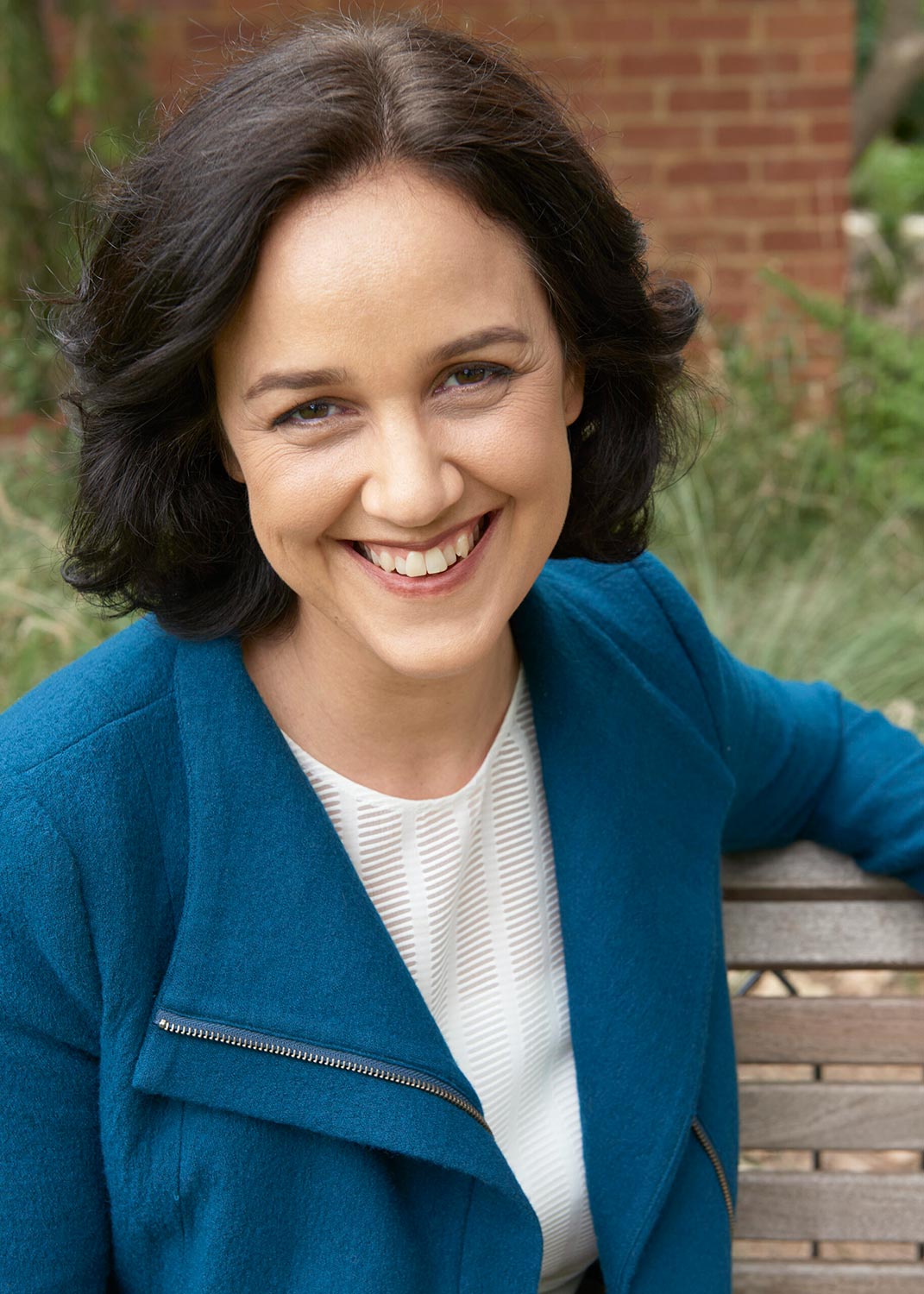
Kate Fullagar is a professor of history at Australian Catholic University, fellow of the Australian Academy of the Humanities, and Vice President of the Australian Historical Association. She specialises in the history of the eighteenth-century world, particularly the British Empire and the many Indigenous societies it encountered. Her interest in comparative Indigenous history focuses on the eastern Pacific (Polynesia), the American southeast (esp. Cherokee), and the Darug-speakers of today’s Sydney. She has an interest, too, in visual history, anthropological history, and experimental uses of biography for history.
Raised in Canberra, Australia, Kate graduated from the Australian National University with an honours degree in History in 1997. She studied for an MA (2001) and PhD (2005) at the University of California at Berkeley.
In Australia, Kate has held academic positions at the University of Sydney (2007-10), Macquarie University (2010-20), and the Australian Catholic University (2020–).
Kate is the author of The Savage Visit: New World People and Imperial Popular Culture (Univ. of California Press, 2012) and the award-winning The Warrior, the Voyager, and the Artist: Three Lives in an Age of Empire (Yale University Press, 2020). She is also the editor of The Atlantic World in the Antipodes: Effects and Transformations since the Eighteenth Century (CSP, 2012), and co-editor with Michael McDonnell of Facing Empire: Indigenous Experiences in a Revolutionary Age (Johns Hopkins Univ. Press, 2018).
Kate has held visiting fellowships at the University of York (as a British Academy Fellow); Duke University (at the John Hope Franklin Center for the Humanities); Yale University (as a Lewis Walpole Library Travelling Fellow); Princeton (as a Humanities Council Fellow); and ANU (Dobell Visiting Chair). She has also spoken frequently in art galleries, on radio and podcasts, and for the History Teachers’ Association.
Kate is a proud member of the Canberra Bilby’s Triathlon Club (strictly swimming only) and she is Lead Chief Investigator of an ARC Linkage Project with the NPG. She lives on Ngunnawal and Ngambri land (aka Canberra) with her partner Iain McCalman, son Rohan, and shoodle Bonnie.




